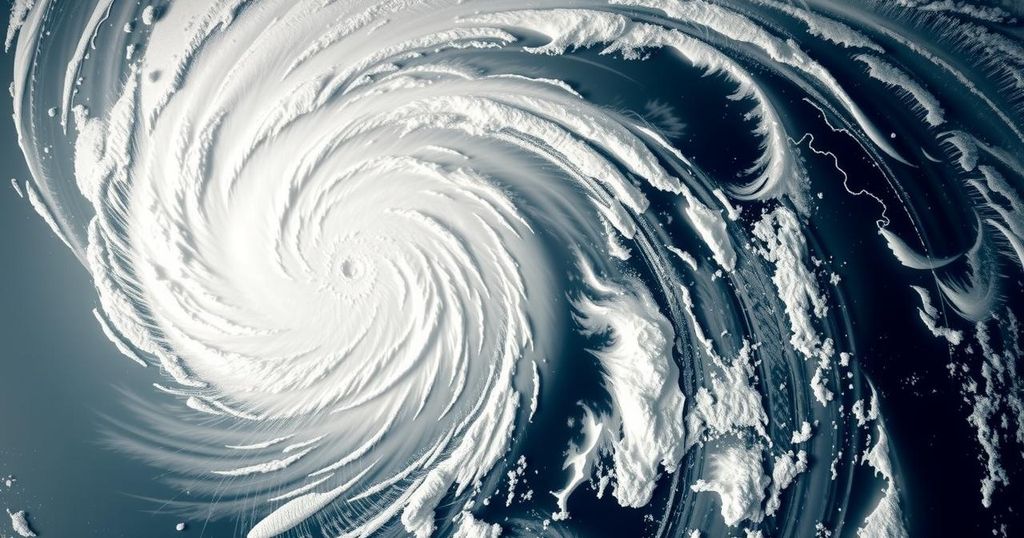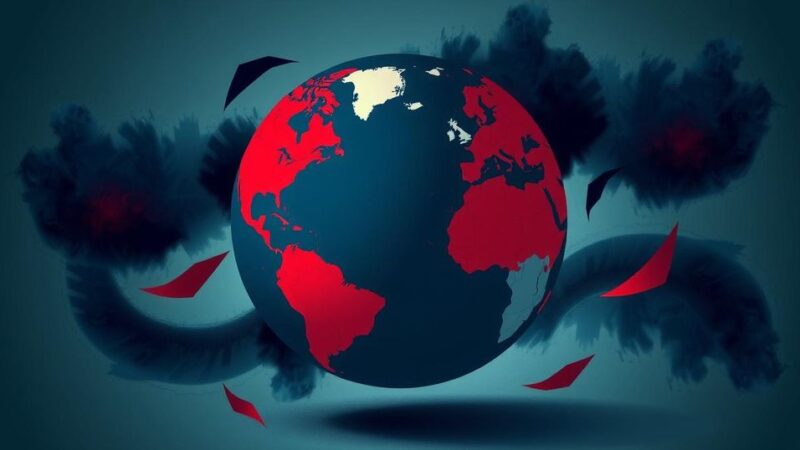Cyclone Chido has devastated Mayotte, leading to multiple deaths and extensive infrastructure damage. French authorities report ongoing rescue operations and significant public facility destruction. The storm is expected to impact mainland Africa, raising concerns for millions. The cyclones reveal the increasing humanitarian crises in climate-vulnerable regions of southern Africa.
Cyclone Chido has wreaked havoc on Mayotte, a French territory in the Indian Ocean, leading to multiple fatalities and extensive damage to infrastructure. French officials, including Interior Minister Bruno Retailleau, have reported that while initial assessments suggest at least a few deaths, accurate figures remain elusive due to ongoing rescue efforts. The cyclone, with wind speeds exceeding 220 km/h (136 mph), has caused substantial destruction across the island, raising concerns for residents living in precarious conditions. Prime Minister François Bayrou confirmed that key public facilities including the airport and hospital have experienced severe damage, and President Emmanuel Macron has been actively monitoring the situation. In response, significant police and rescue personnel have been deployed to assist the affected population and prevent potential looting. As the cyclone continues toward the African mainland, neighboring Comoros Islands have also suffered its impact, prompting local authorities to close airports and prepare for further storm impacts. Mozambique is expected to face significant threats as Chido approaches, with authorities warning that millions may be affected. The history of cyclone-induced disasters in the region underlines the ongoing challenges posed by climate change, which exacerbate humanitarian crises in countries ill-equipped to cope with such natural calamities.
Cyclone season, occurring from December to March in the southeastern Indian Ocean, is characterized by severe weather events. In recent years, southern Africa has increasingly faced the aftermath of powerful cyclones, leading to thousands of casualties and widespread devastation. Cyclones like Idai and Freddy have left lasting impacts on the region, highlighting vulnerabilities worsened by climate change. These phenomena render already struggling nations particularly susceptible to humanitarian crises, with minimal contributions to climate change themselves. The recurrent nature of such disasters necessitates a comprehensive understanding of the risks faced by both coastal and inland communities during these seasons.
The impact of Cyclone Chido has highlighted the vulnerability of communities in Mayotte and the surrounding regions as they face a severe natural disaster. With multiple fatalities and substantial infrastructure damage, immediate response measures are being undertaken by French authorities. As the cyclone progresses toward mainland Africa, the threat to Mozambique and neighboring nations becomes increasingly concerning. The compound effects of climate change exacerbate these risks, necessitating global awareness and support for the regions most affected by such destructive storms.
Original Source: www.cnn.com






